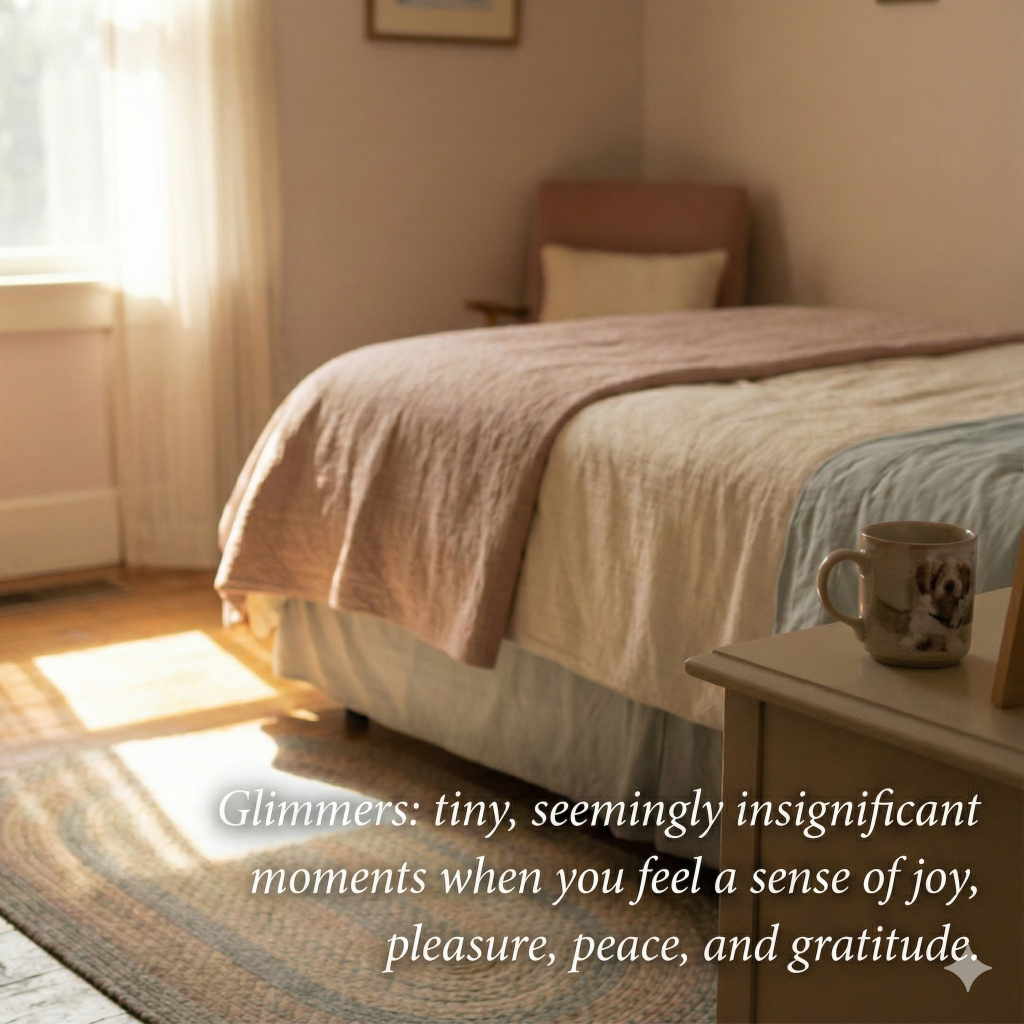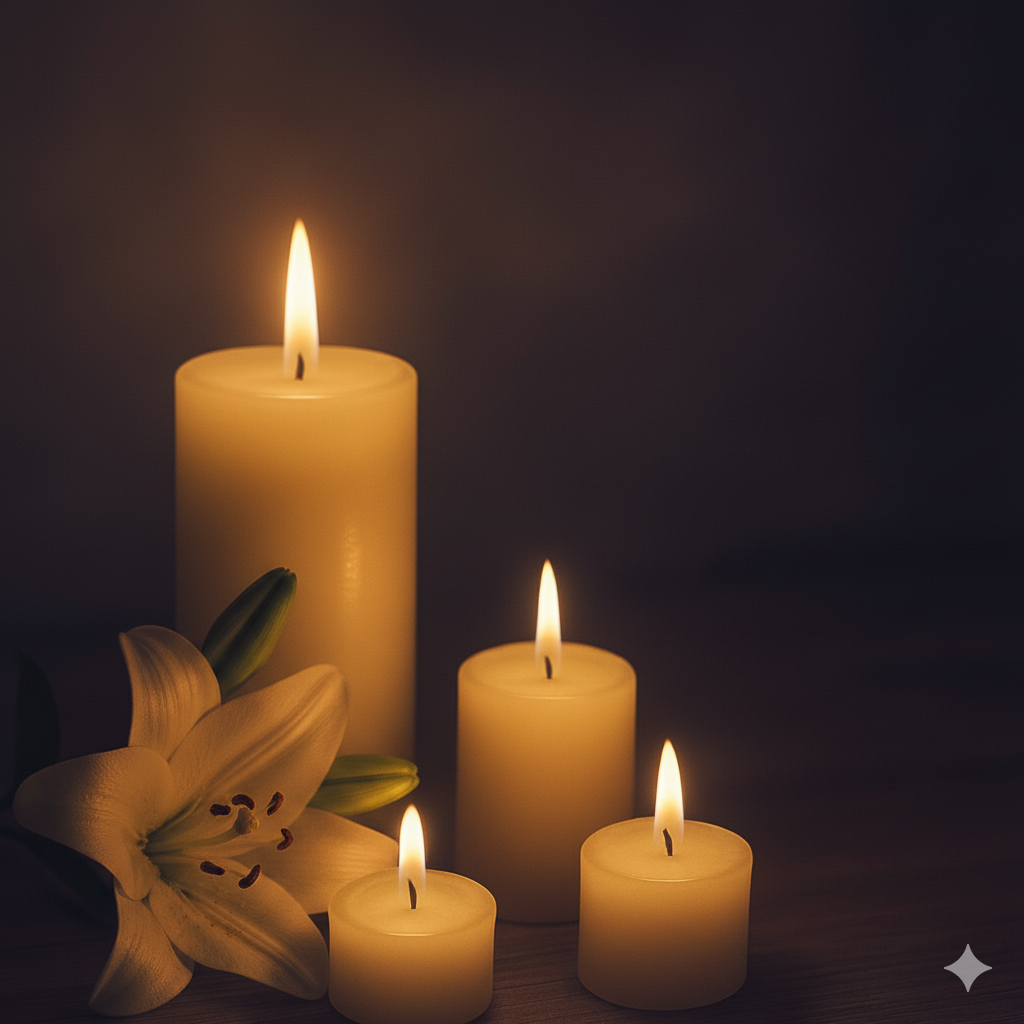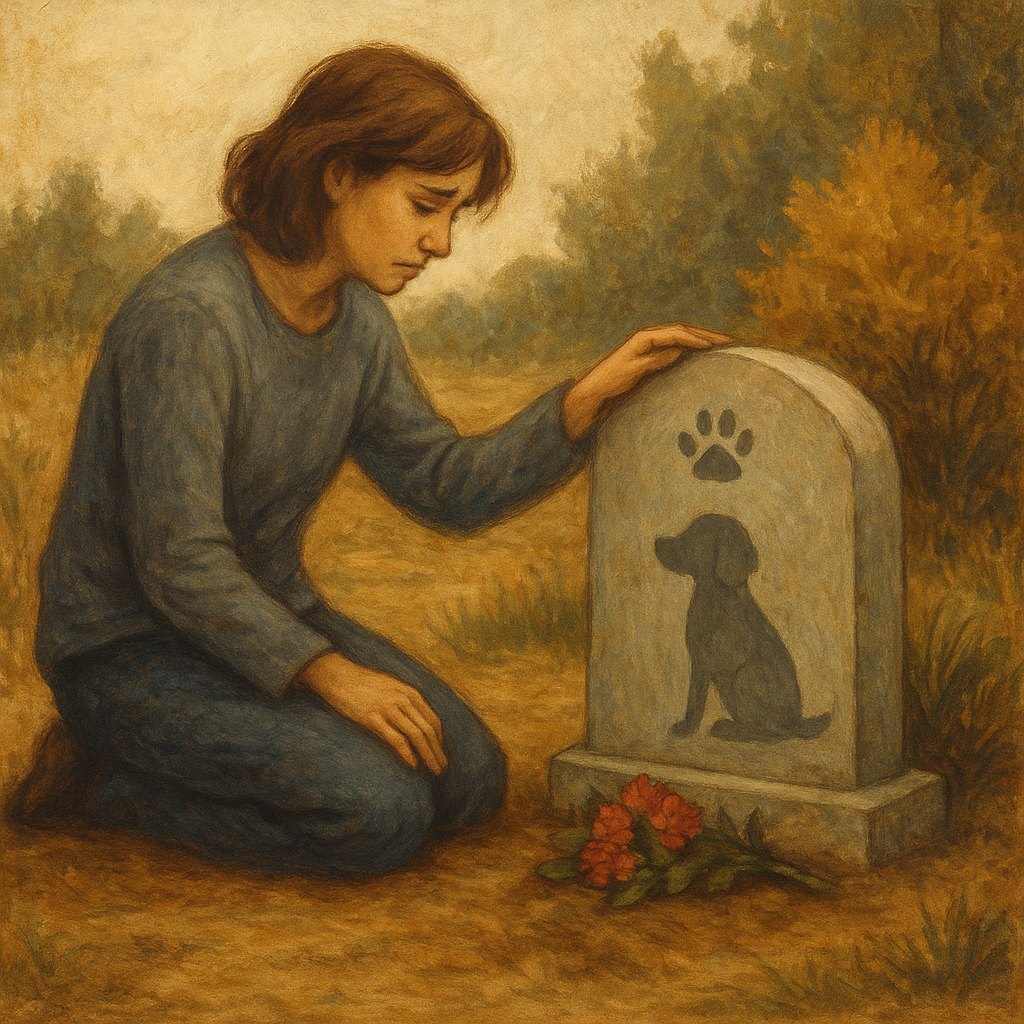Not every bond between humans and our fellow animals is easy.
Some animals come into our lives with big feelings, complex needs, or past experiences that shape how they move through the world. They might be reactive or fearful or have health challenges that affect their behaviour. Or they might struggle to adjust to the routines of domestic human life (often, when an animal is dubbed “difficult”, it’s because their behaviour doesn’t fit with current human society).
Thinking of your own animal friend, they may have needed medication, special care, or ongoing behaviour management, which added extra pressure points or complications to your shared days. Their needs might have dictated where you went, who you saw, who was able to visit your home, how much sleep you got, and how you lived.
And still, you loved them. You loved them with your whole heart and soul, perhaps because your bond was hard won, messy at times, and completely one of a kind.
If you’re grieving an animal friend who was considered “difficult” – whether due to behaviour, health, or emotional challenges – we are so sorry for your loss.
When the relationship was complicated
Sometimes the love we feel for an animal companion lives side by side with frustration, fear, or exhaustion. Maybe your animal friend growled, hissed, scratched, or bit. Maybe they destroyed furniture, showed aggression toward other animals, or were constantly on edge. Perhaps they had complex health needs that left you managing intensive care routines or responding to crises at all hours.
While dogs are often the focus in conversations like this, animals from almost any species can be dubbed “difficult” or “challenging” for one reason or another.
Cats may struggle with anxiety or react unpredictably. Rabbits and small animals can be skittish, difficult to handle, or show aggression, especially if they weren’t well-socialised or introduced to human contact early in life (this isn’t always a deciding factor, but it can be).
Birds can be loud, destructive, or territorial. Reptiles may need extremely specific care that is hard to get right. And horses – sensitive, intelligent beings that they are – can be challenging to handle if they exhibit behaviours like bolting, biting, or refusing to be caught, which can be dangerous and emotionally draining for their carers.
None of this means you loved them any less. It simply means your relationship required a different kind of patience, a different kind of energy, and a different level of understanding. And when that relationship ends – through illness, accident, old age, rehoming, or behavioural euthanasia – the grief can feel especially layered.
When you were part of the inner circle
Let’s also take a moment to acknowledge how life-changing a relationship with a so-called “difficult” animal can be.
There is something so profoundly special about being in their inner circle. You may have been one of the few people they trusted, the one who got to see behind the fear or reactivity to the softness underneath. You knew their quirks, the look they gave you when they were curious or unsure, the tiny ways they showed affection that others might never have noticed.
Being their safe space may have been hard at times, but it was also a privilege.
Sometimes we end up loving our more challenging companions even more fiercely than our laid-back friends. Because, while it wasn’t always easy, we saw who they really were (and they saw us too).
This partnership taught us patience, resilience, empathy, and what it means to be truly chosen.
You may find it helpful to read our blog about loving a reactive dog, where we explore the emotional toll and beauty of these kinds of bonds.
What you might be feeling
You might be feeling guilt, sadness, confusion, or relief. You might be grieving the loss of a daily routine that, although difficult, gave shape and meaning to your life. You might miss their presence even if it was unpredictable or overwhelming.
Or you may be experiencing complex emotions that are difficult to express in words.
You might also feel shame for feeling angry sometimes, for resenting the situation, or for struggling with the emotional and physical toll of caring for your animal friend during the hard times. You may be haunted by decisions you made, especially if you had to say goodbye in circumstances that didn’t feel ideal.
Please know these emotions are human. They don’t cancel out the love. It is possible to feel deep sorrow and a sense of relief. To feel heartbreak and peace. To miss them and remember the struggle.
When people say the wrong things
Grieving the loss of a “difficult” animal friend can be especially painful when others don’t understand. Well-meaning people might say things like, “At least you can have a break now,” or “At least life will be easier,” as if your animal companion was more burden than blessing.
Even if you had moments of thinking those things yourself, hearing them from someone else can feel like a dismissal of everything you shared, including the effort, growth, and love. It can make the grief feel invisible.
The truth is, many guardians of complex animals would give anything for one more day, one more moment, even with all the challenges. Because the difficult moments were just one part of a bigger picture, which included a bond built on deep trust, hard-won progress, and unconditional care.
If you’re feeling hurt by what others have said – or not said – please know that your grief is valid. You don’t need anyone else’s permission to mourn. You knew the full story, and you’re allowed to grieve it fully.
If behavioural euthanasia was part of the story
Some guardians reach a point where safety, suffering, or quality of life means making the painful decision to say goodbye. If you had to make that decision due to behavioural challenges, please know that you are not alone.
This kind of loss carries a very particular weight. It may be hard to talk about. Others may not understand and can be quick to share their opinions. You may question whether you tried hard enough, whether you loved deeply enough, or whether you gave enough chances.
But you did what you could, with the information and resources you had, at the time you had to make the decision. Most guardians only consider behavioural euthanasia when every other medical and behavioural option has been considered. That deserves gentleness.
You gave your animal friend time, effort, care, and love, before making a decision that was rooted in compassion, not convenience. That matters.
If the story came to a natural end
Even if your animal friend died of natural causes, it doesn’t mean the story was simple. You may have experienced years of navigating challenges (such as helping them feel safe to be examined by a vet), rebuilding trust, adapting to setbacks, and learning along the way. Perhaps you made mistakes and carry regrets, but hopefully, you also carry pride in how far you both came.
The end of a long, sometimes fraught relationship can bring space for reflection. You might find yourself replaying memories, noticing both the hard and the beautiful moments. Let yourself honour all of it, from the missteps to the milestones. You will always remember the path you walked together.
Coping with this kind of grief
Here are a few ways you might support yourself:
- Be honest with yourself. You can love someone and still find them hard to live with. It doesn’t make your grief any less real, and it doesn’t mean you loved them any less than if things had always been easy.
- Write a letter. Express everything you feel – the good, the hard, the in-between. Let the complexity out.
- Talk to someone who understands. If you can, connect with a friend or even a counsellor who knows this kind of loss.
- Create a ritual. Light a candle, say their name, or create a small memory space. Honour their life as it was.
- Make space for mixed emotions. Try not to judge yourself for what you feel, even if those feelings shift from one day to the next.
- Acknowledge what you gave. Time, patience, adaptation, and resilience are all acts of love.
Grief isn’t just for the easy relationships. It’s for the messy, complicated, real ones too.
You loved them
You showed up for your animal friend when they needed you. You adapted, you learned, you tried. And whether you felt connected every day or struggled sometimes to understand each other, the love you gave counts.
You don’t have to tidy your grief into a neat box, nor do you have to justify the pain. Just let it breathe.
Your animal friend was one of a kind, and your love for them was, too.
Shailen and The Ralph Site team
The Ralph Site, non-profit pet loss support





